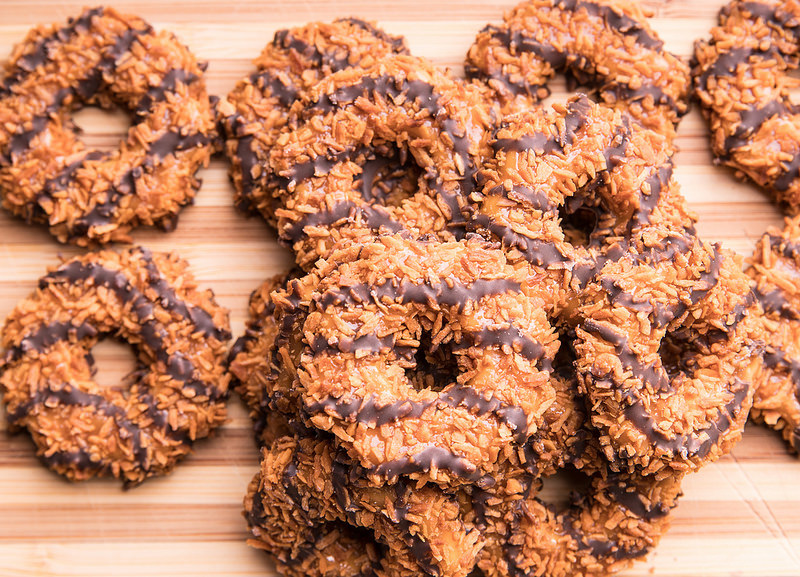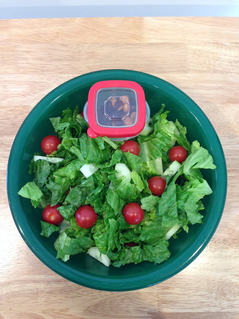Why do we need to worry about sugar? Sugar in the blood is not a bad thing on its own. In fact, without this important fuel we wouldn’t last very long. However, like most things, in the right amount we stay healthy, but when we have too little sugar or too much, that’s when problems arise. Our main method of procuring this fuel is eating and drinking. Anything we consume, our body breaks down into it’s most basic building blocks, glucose, which is sugar, being one of them. Once broken down, the body shuttles the glucose to where it’s needed. If you’re playing a game of tag, then you’re going to need glucose for your muscles. If you’re studying for a big test, then you need glucose for your brain. The blood is simply the highway system in your body that transports the glucose (along with many other things) throughout the body until it reaches it’s final destination.
What can we do? Eating Well We know that balance is important, but what are some easy and crucial things we can do to improve our blood sugar balance. One, you may have guessed, is being mindful of what you eat! Proper nutrition is really a cornerstone of good health. Start with eating a diet focused on good whole foods, which includes 5-10 servings of fruit and vegetables a day, whole grains (complex carbs), good proteins and healthy fats. Then avoiding excess sugar, like soft drinks. Did you know that there can be as many as 6-10 tbsp of sugar in 1 can of pop? Another helpful trick is to have either protein or fat with each meal. Not only do they help you feel more full for longer, they also modulate the rush of sugar coming into the body. If we’re looking at a curve of blood sugar levels, this is what happens if we have sugar by itself, a big spike and then decline about an hour to a few hours later. This is why people who have a chocolate bar for their afternoon snack feel like they have lots of energy and focus for the first hour or so after, but end up feeling more tired later on when their blood sugar plummets. If you eat fat or protein with your other foods, it helps to temper this spike in blood sugar so you don’t have a huge increase and subsequent decrease of blood sugar and corresponding energy levels.
Blood sugar levels have a story to tell about our health, and every choice you make with your diet and lifestyle habits writes that story. Make sure you make the right choices for you: eat right, exercise and modify your stress. Your family and your future self will thank you for taking steps to ensure that your blood sugar story is writing about a long and healthy future.
Have questions about how you and your family can reduce your sugar intake? Ask me about it by emailing me through the 'contact me' section or give me a shout at the office. I'm here to help you achieve your best possible health. Note: Talk to your Naturopathic Doctor today about getting assessed and treated if needed, and as always talk to your health care provider before beginning any new medication or supplement. This information is not meant to replace the advice/guidance of a medical professional, nor should it be acted upon by individuals unsupervised by the appropriate healthcare provider. References: Silverthorn, D.U. 2010. Human Physiology An Integrated Approach. Fifth Edition. Pearson International Edition. Stats Canada. 2016. Obesity in Canada: A Whole-of-Society Approach to a Healthier Canada: http://www.parl.gc.ca/content/sen/committee/421/SOCI/Reports/2016-02-25_Revised_report_Obesity_in_Canada_e.pdf WebMD. Fit Jr. (2016). Just a Spoonful of Sugar Adds Up: http://fit.webmd.com/jr/food/pdf/pdf-sugar-adds-up
2 Comments
Leave a Reply. |
Sarah Connors
I am a Naturopathic Doctor and Doula providing care in the Kitchener-Waterloo area. I have a passion for helping people with their health issues and improving the birth experience for Moms, and their babies. I also have a life long love affair with soccer, curling, and the alto saxophone. Archives
November 2020
Categories
All
|
Photos from Rural Royalty, manu flickr2010, Ryan Dickey, wocintechchat, huskyte77, paulswansen, Black Room Photography, harum.koh, Emery Co Photo, JeepersMedia, BrownGuacamole, wellnesswildflower, JeepersMedia, vastateparksstaff, colindunn, seelensturm, /\ \/\/ /\, 50mm.za, The Simpsons (Lee, Shirley, Luke and Rachel), AGRONAUTI, aivas14, Jonathan Rolande, winnifredxoxo, juhansonin, osseous, nan palmero, Theo Crazzolara, brianfagan, TP studio, wuestenigel, torbakhopper, anka.albrecht, Michael Stern, [-ChristiaN-], franchiseopportunitiesphotos, terren in Virginia, nateOne, barnimages.com, Dun.can, wuestenigel, @lattefarsan, amandabhslater, aphrodite-in-nyc, nutritionaldoublethink, Anne Worner, donnierayjones, mikecogh, angeloangelo, Rob.Bertholf, getaiwan, Lida Rose, matsuyuki, SurFeRGiRL30, marcoverch, amsfrank, mdaltry, nutrition education, Mike Prince, Edsel L, Neighborhood Nini, philipp.alexander.ernst, Mediocre2010, homethods, quinn.anya, Gamma Man, katerha, Eric Kilby, National Institutes of Health (NIH), rcmd_cfdfw_5_2, curtis palmer, Ray in Manila, frankieleon, Airsoftpal.com, byzantiumbooks, cchana, Brian Legate, Matt Lavin, BradHinton, monpetitchouphotography, wuestenigel, alexisjordanlewis, ByEPhotos, erix!, RLHyde, return the sun, quinn.anya, mliu92, frankieleon, loudista, Lyn Lomasi, upslon, derrickbrutel, cchana, National Institutes of Health (NIH), watts_photos, marcoverch, derrickbrutel, francesbean, weegeebored, Airsoftpal.com, Etwood, wu_135, shixart1985, Ingrid Taylar, VeritasFotografie, BioDivLibrary, emmanuelmorales1, Thanks for 1.5 Million Views!!, Will Merydith, reader of the pack, RoxyHobbs, Khanelle Prod' Medias, storyvillegirl, agromonitor, Arenamontanus, six:eleven, cote, SweetOnVeg, nenoirenediaz, lucianvenutian, markhillary, anotherlunch.com, inkknife_2000, archibald jude, rawtrigger, Imaginary Museum Projects: News Tableaus, Pavel P., Courtney Emery, Thien Gretchen, physiognomist, bark, Michigan Municipal League (MML), alberth2, Merelymel13, neofob, Care_SMC, Parker Knight, B*2






 RSS Feed
RSS Feed
